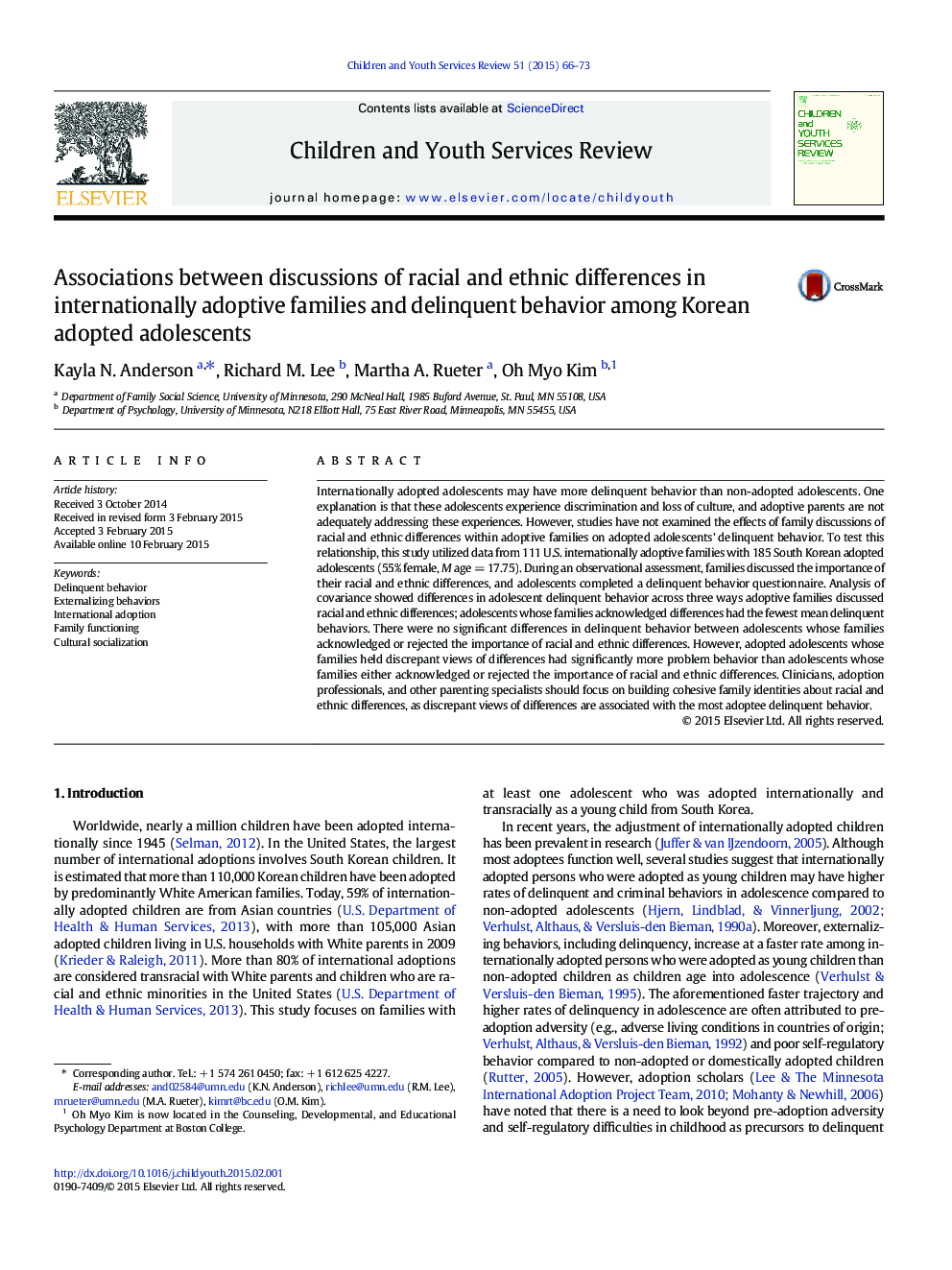| Article ID | Journal | Published Year | Pages | File Type |
|---|---|---|---|---|
| 6834075 | Children and Youth Services Review | 2015 | 8 Pages |
Abstract
Internationally adopted adolescents may have more delinquent behavior than non-adopted adolescents. One explanation is that these adolescents experience discrimination and loss of culture, and adoptive parents are not adequately addressing these experiences. However, studies have not examined the effects of family discussions of racial and ethnic differences within adoptive families on adopted adolescents' delinquent behavior. To test this relationship, this study utilized data from 111 U.S. internationally adoptive families with 185 South Korean adopted adolescents (55% female, M age = 17.75). During an observational assessment, families discussed the importance of their racial and ethnic differences, and adolescents completed a delinquent behavior questionnaire. Analysis of covariance showed differences in adolescent delinquent behavior across three ways adoptive families discussed racial and ethnic differences; adolescents whose families acknowledged differences had the fewest mean delinquent behaviors. There were no significant differences in delinquent behavior between adolescents whose families acknowledged or rejected the importance of racial and ethnic differences. However, adopted adolescents whose families held discrepant views of differences had significantly more problem behavior than adolescents whose families either acknowledged or rejected the importance of racial and ethnic differences. Clinicians, adoption professionals, and other parenting specialists should focus on building cohesive family identities about racial and ethnic differences, as discrepant views of differences are associated with the most adoptee delinquent behavior.
Related Topics
Health Sciences
Medicine and Dentistry
Perinatology, Pediatrics and Child Health
Authors
Kayla N. Anderson, Richard M. Lee, Martha A. Rueter, Oh Myo Kim,
